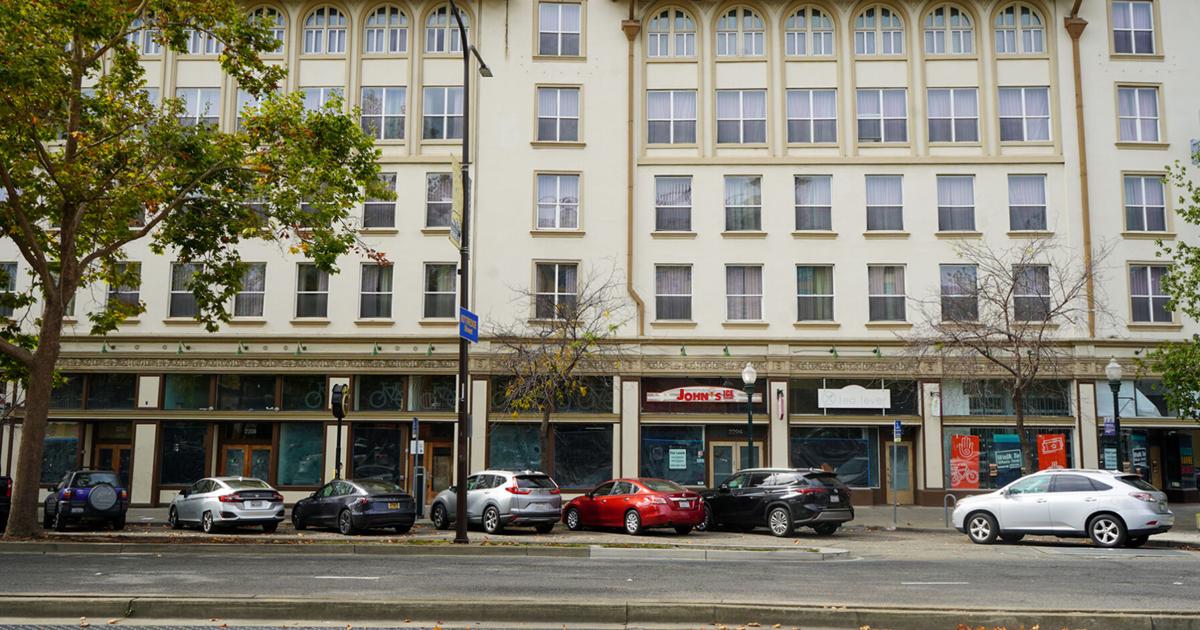The new investors of one of Shattuck Avenue’s most historic blocks have taken up the task to rejuvenate its currently vacant properties.
Flying Horse Investments, or FHI, a Los Angeles-based real estate investment management firm, closed the sale on the ground-floor properties between Allston Way and Kittredge Street on Oct. 7. Eric Shulman, managing principal for FHI, declined to share how much the firm paid for the property.
“Bringing new business into these vacant storefronts will allow this iconic building to once again serve and enliven our community,” said Leila Moncharsh, president of the Berkeley Architectural Heritage Association, or BAHA, in an email.
The block, currently consisting of completely empty storefronts, is the heart of the city, according to BAHA. It is the site that Berkeley’s founder, Francis Kittredge Shattuck, chose as his home. Yet it now resembles something of an “open pit,” as dubbed by District 4 Councilmember Igor Tregub.
“It was apparent that this block has become sort of an eyesore in the community over the years, where it was once a vibrant retail block,” Shulman said. “It’s one of those things where we feel that, with the capital that we have allotted for the property, we can … bring it back to life.”
Shulman said he liked the location of the properties because there are a lot of “demand drivers” in the immediate area, including UC Berkeley, Berkeley High School, the downtown BART station and various civic buildings.
When FHI first started working on obtaining the property, Shulman said he spoke to various members of the community, including the Economic Development Office, the Downtown Berkeley Association and various city officials.
“Everybody’s really supportive of our efforts and the ability to fulfill the need for additional retail,” said Joe Spicer, managing principal of FHI.
John Caner, CEO of the Downtown Berkeley Association, said his understanding is that FHI will renovate all the retail spaces to make them more visually attractive and welcoming. The vacant storefronts the property currently houses have made the city’s downtown less welcoming, he added, prompting people not to explore its various offerings.
Spicer added that due to new multi-family developments in the downtown area over the last several years, there is a need for additional retail to support the higher residential density. The firm hopes to invest capital in the interior of the spaces to clean them up and rid them of existing buildout that was left over by previous tenants.
Shulman said the firm has money allocated for leasing commissions and tenant improvements as they begin to form new leases with new tenants.
“(We’re going to) do what we call a white box or vanilla shell,” Shulman said. “We’re basically cleaning (the properties) out, painting interiors and getting them ready for a new tenant to put finishing touches on.”
As for a timeline on the project, Shulman said it is a tough question. Currently, the firm is applying for demolition permits, among other things.
When storefronts can open depends a lot on how the city processes permitting documents and other work, but they could open in 12 to 18 months, according to Shulman.
“I am very grateful to Flying Horse Investments for keeping the vitality of the Berkeley community in mind and rebuilding something that has clearly fallen on hard times over the years, but can be brought back in the spirit of creativity and innovation that Berkeley has been known for,” Tregub said.

